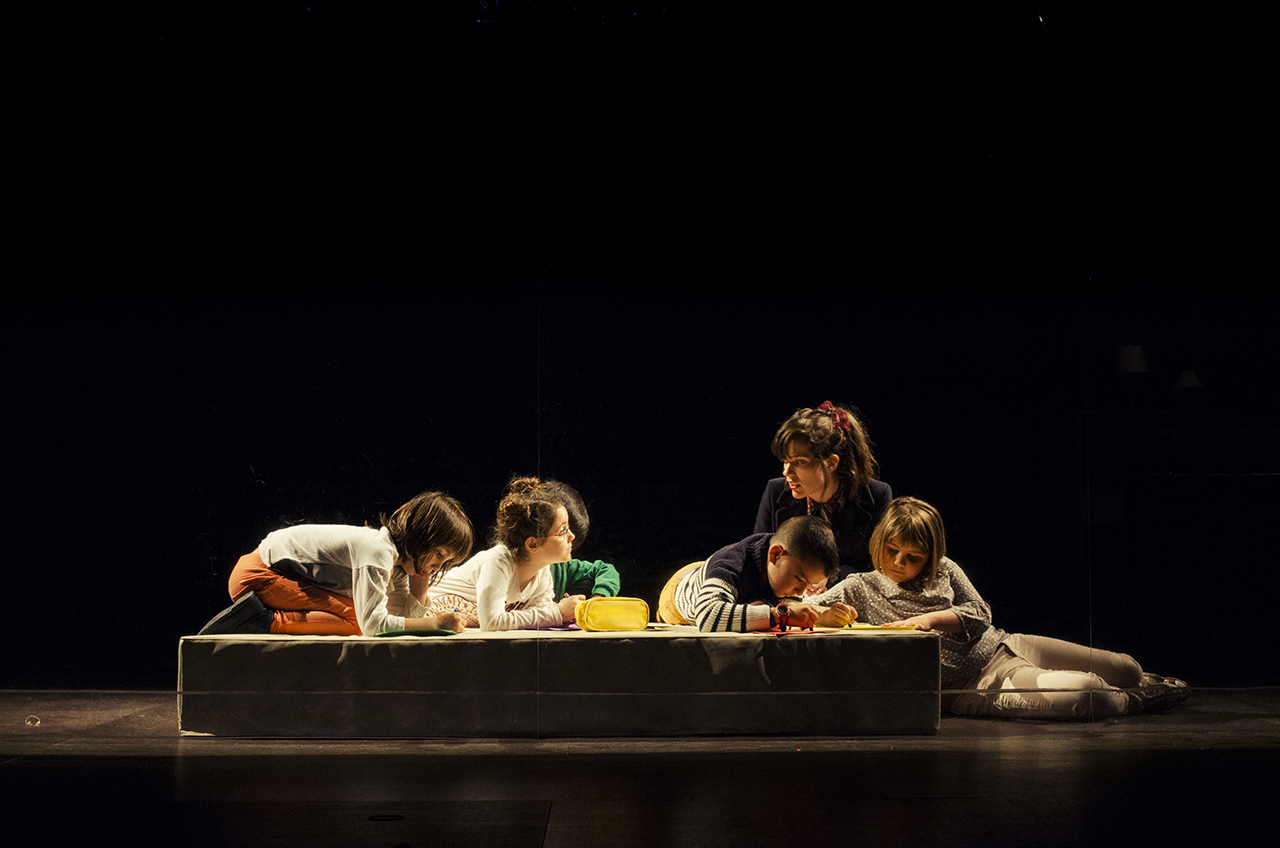“Better than changing the world, like Marx said, we have to change life, as Rimbaud said. We need to change the way we perceive the world.”
—Leopoldo María Panero
We understand theatre as the place to reveal secrets, to bring the dead back to life for an instant. CINE is a piece about the stolen children in Spain. An obscured phenomenon that is barely spoken of in our country. From 1939 to the mid 80’s there were around 300.000 stolen children in Spain. To adjust dimensions we can compare it with Argentina, where 500 children are thought to have been stolen.
But we are not judges, nor reporters. Our responsibility is to confront this matter following our own language. Creating images and texts that try to amplify the limits of what the scene is. Trying to keep on with the imagination of what scenic arts are in the 21st century. Can we keep looking into our own language when what you want to talk about is so hard and definite? That’s the challenge.
Opened April the 7th, 2016. Festival de Otoño, Comunidad de Madrid.
A scenic piece by: La tristura
Creation and text: Itsaso Arana and Celso Giménez
On stage: Itsaso Arana, Fernanda Orazi and Pablo Und Destruktion
Voices: Roberto Baldinelli, Eduardo G. Castro, Javier Gallego, Miren Iza, Adriana Salvo.
Set design: Ana Muñiz
Light design and technical direction: Eduardo Vizuete
Technical assistant: Roberto Baldinelli
Sound design: Eduardo G. Castro
Almighty helpers: Violeta Gil and Emilio Rivas
Communication: Paloma Fidalgo and Israel Paredes
Billboarding and photography: Mario Zamora
Graphic design: Estado Triplete
International distribution: Claudio Ponzana
A production by: La tristura, Comunidad de Madrid, Las Naves Espai de Creación
and Festival de Otoño a Primavera.




